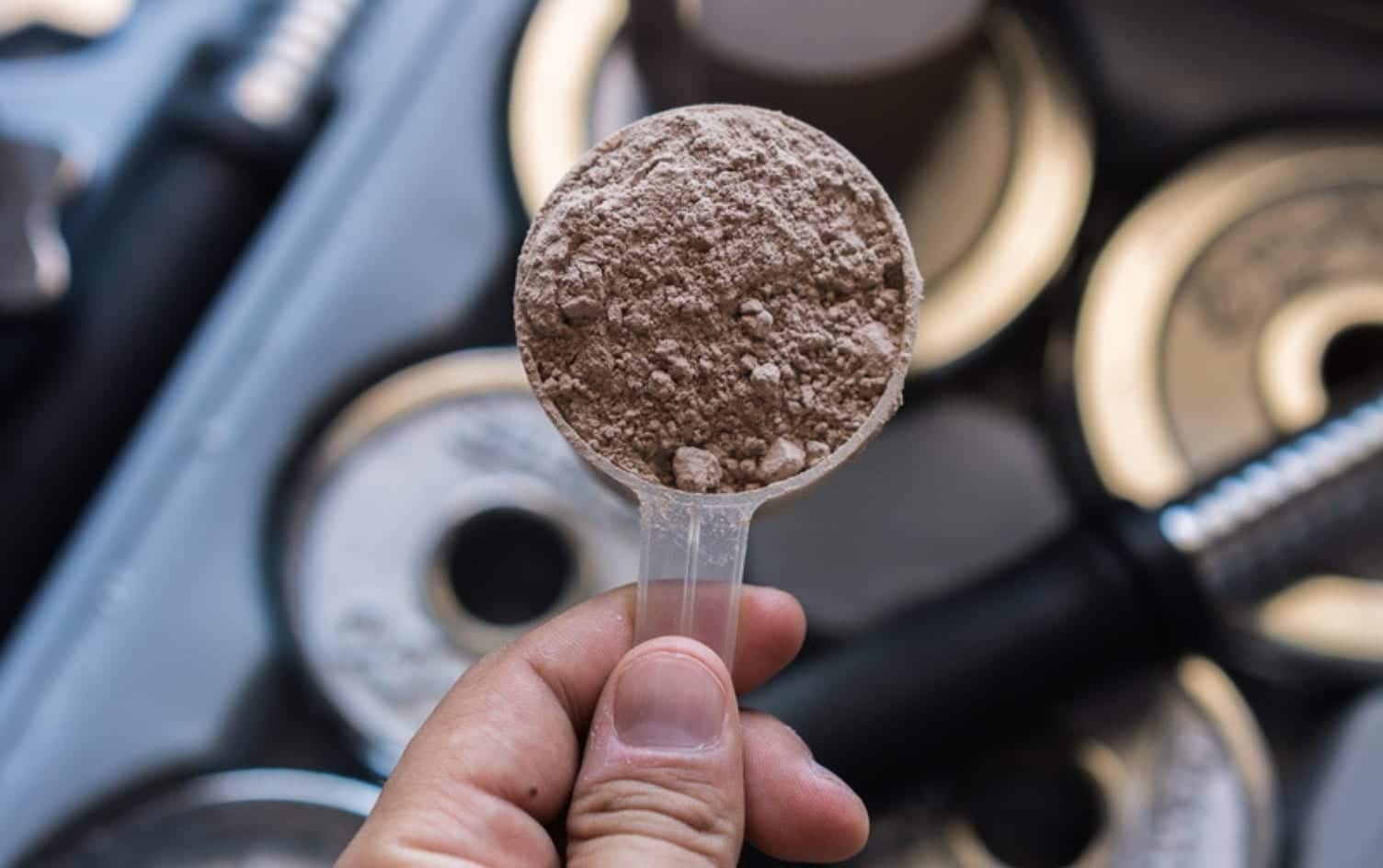With so many gym buffs lugging around shaker bottles, it’s easy to assume protein shakes are a must if you want to build muscle. But recent research in the Journal of Nutrition challenges this notion. In the study, healthy young men drank a daily protein shake or placebo shake and strength-trained three days a week for three months. Those who drank the protein shake only gained slightly more lean muscle mass (about two pounds) than those who drank the placebo shake. What’s more, there was no difference between the groups when it came to gains in leg muscle mass, overall muscle size or strength.
While few studies have examined the muscle-building benefits of protein shakes specifically, it’s important to check out the ingredients label before you lay down big bucks for a tubful of powder. “Protein powders, shakes and supplements tend to be highly processed with a lot of preservatives and add-ins that may impact your health in unforeseen ways,” says Liz Wyosnick, RD, owner of Equilibriyum in Seattle, Washington.
“In general, you don’t need protein shakes if you’re eating a variety of plant– and/or animal-based protein sources,” adds Rachel Fine, RD, owner of To The Pointe Nutrition in New York City. Others argue they can help you increase your protein intake when you’re short on time or tired of simply eating grilled chicken.
Here, everything you need to know about protein shakes and muscle-building before you stock up:
WHAT ARE PROTEIN SHAKES MADE OF?
Protein powders and shakes are comprised of concentrated protein from sources like milk, soy, eggs, peas, hemp and rice. “Once you strip down the protein, there are no micronutrients left, so powders are often fortified with hyper-doses of synthetic vitamins and minerals, sweeteners for palatability, thickeners for acceptable texture and preservatives so they can sit safely at your local store,” says Wyosnick.
Shakes often come with “artificial sweeteners, sugar alcohols, sugar alternatives like high-fructose corn syrup and artificial flavors which can result in a common side effect: digestive distress and discomfort,” adds Wyosnick. Furthermore, emerging research shows some sweeteners can alter your gut microbiome and may negatively impact your metabolism, per a recent review in Advances in Nutrition. “One binder, called carrageenan, (which gives shakes that milky, creamy texture) might also contribute to inflammatory processes and significant digestive problems,” says Wyosnick.
Because the Food and Drug Administration (FDA) doesn’t regulate dietary supplements like conventional foods or drugs, it’s up to the manufacturer to let you know what’s inside your shake — and examinations have found contaminants like arsenic, cadmium and lead in concerning levels in some powders. “Powders and supplements are messy when it comes to considering the impact on health,” says Wysonick. “There are just too many unknowns.”
CAN PROTEIN SHAKES HELP YOU BUILD MUSCLE?
In general, “protein shakes alone won’t help you build muscle and aren’t totally necessary,” says Wyosnick. “Muscle is built with strength training and balanced nutrition surrounding workouts.” High-protein whole foods like meat, fish, Greek yogurt, eggs, soy, beans, nuts and seeds provide ample nutrients, antioxidants and fiber along with the essential protein needed to rebalance your body and build muscle after exercise, says Wyosnick.
The optimal amount of protein to bulk up ranges from 0.54–0.91 grams per pound of body weight per day, and most people can easily reach that amount with whole foods (which are generally less expensive) in 3–4 meals and snacks, says Wyosnick. For example, a 150-pound active person can aim to eat about 90 grams of protein a day, or 20–25 grams per meal. That’s about two eggs, 1 cup of Greek yogurt, one chicken breast and 1 cup of black beans in a day.
Beyond this, a high-protein shake alone won’t build muscle if you’re low on carbs and fat. “We need all three macronutrients for optimal health and muscle building,” says Fine. “Carbohydrates stimulate the release of insulin, which is an anabolic hormone that promotes the uptake of protein and carbs, therefore playing a key role in protein absorption [Read: rebuilding and strengthening your muscles],” she says. “Fat, especially monounsaturated fats [found in avocados, olive oil and nuts] and essential omega-3 fatty acids [found in fish and flaxseed] help lessen the natural inflammation that occurs from increased metabolic work.”
THE BOTTOM LINE
When you’re short on time or looking for convenience, protein shakes can be a helpful way to include protein in your diet, but it’s generally a good idea to “focus on a food-first approach,” says Fine. “Before purchasing a protein powder, it’s best to consult with a registered dietitian to make sure you’re reaching your individual protein needs,” says Wyosnick. When you are ready to make a purchase, “look for a product with ingredients you recognize and that has the NSF certification, a third-party verification,” she adds.




